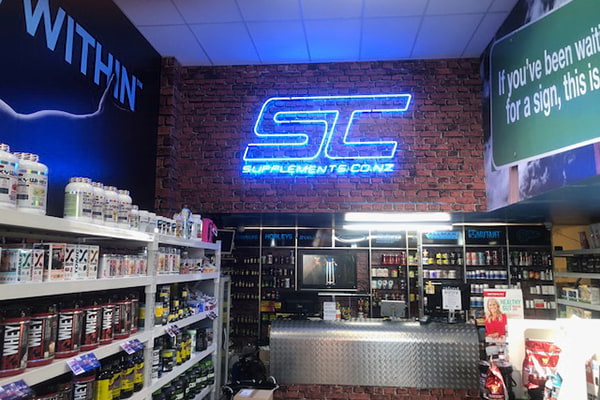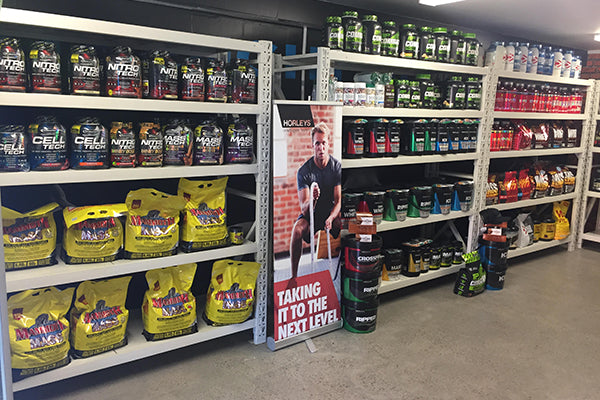Creatine Monohydrate vs. Other Creatine Forms: Examining the Evidence
Hi Team
Jase here, its a busy, busy world of fitness and sports supplementation, few compounds have garnered as much attention as creatine.
Known for its ability to enhance athletic performance, increase strength, and support muscle growth, creatine is a staple in many a gym goers supplement stack. But with a variety of creatine forms on the market, how do you know which one to choose? Today, we’re diving into the details of creatine monohydrate versus other creatine forms to help you make an informed decision.

What is Creatine?
Before we get into the specifics, let's briefly discuss what creatine is and why it's so popular. Creatine is a naturally occurring compound found in small amounts in certain foods and synthesized by the human body. It's stored in the muscles and used as a quick source of energy during high-intensity activities like weight lifting and sprinting.
Creatine supplementation has been shown to increase the availability of phosphocreatine in muscles, which can help maintain energy production during intense exercise, improve overall performance, and support muscle recovery and growth. More phosphocreatine more explosive power.
Creatine Monohydrate: The Gold Standard
Creatine monohydrate is the most researched and widely used form of creatine. It's essentially creatine bound with a water molecule, making it incredibly effective and relatively inexpensive. The vast majority of studies supporting creatine's benefits have used creatine monohydrate, establishing it as the gold standard.
Benefits of Creatine Monohydrate:
- Proven Effectiveness: Numerous studies have confirmed that creatine monohydrate can improve strength, increase muscle mass, and enhance performance in high-intensity exercise.
- Affordability: Being the most common form of creatine, it's also the most cost-effective.
- Safety: Decades of research have shown that creatine monohydrate is safe for long-term use when taken at recommended dosages.
- Ease of Use: It dissolves easily in water and is generally well-tolerated by most users.
However, like any supplement, creatine monohydrate isn't without its drawbacks. Some people report gastrointestinal discomfort or bloating when using it, and it requires a loading phase (a short period of high dosage) to saturate muscle stores quickly.
Other Forms of Creatine
In response to some of the minor drawbacks of creatine monohydrate, various other forms of creatine have been developed. Let's take a closer look at some of the most popular alternatives and see how they compare.
- Creatine Hydrochloride (HCL)
Creatine HCL is creatine bound with hydrochloric acid, which enhances its solubility in water. This increased solubility is thought to improve absorption and reduce the likelihood of stomach issues.
Pros:
- Better Solubility: Dissolves more easily in water than creatine monohydrate.
- Reduced Dosage: Some users report needing a smaller dose to achieve similar effects.
- Fewer Side Effects: Potentially less bloating and gastrointestinal discomfort.
Cons:
- Cost: Typically more expensive than creatine monohydrate.
- Limited Research: Fewer studies support its effectiveness compared to creatine monohydrate.
- Buffered Creatine (Kre-Alkalyn)
Buffered creatine, or Kre-Alkalyn, is creatine monohydrate with an added alkaline buffer, designed to prevent the conversion of creatine to creatinine (a waste product) in the stomach.
Pros:
- Stability: The buffering may improve the stability of creatine in the stomach.
- No Loading Phase: Often marketed as not requiring a loading phase.
Cons:
- Limited Evidence: There's little scientific evidence to suggest it’s more effective than creatine monohydrate.
- Price: Generally more expensive than creatine monohydrate.
- Creatine Ethyl Ester
Creatine ethyl ester is creatine monohydrate with an ester group attached, theoretically enhancing its absorption into muscle cells.
Pros:
- Potential for Better Absorption: Some claim it has better absorption rates.
- Less Water Retention: Users sometimes report less water retention compared to creatine monohydrate.
Cons:
- Questionable Effectiveness: Studies comparing it to creatine monohydrate have not shown superior results.
- Higher Cost: More expensive without proven additional benefits.
- Creatine Nitrate
Creatine nitrate combines creatine with a nitrate molecule, which might enhance its solubility and provide added benefits like improved blood flow.
Pros:
- Enhanced Solubility: Dissolves better in water.
- Possible Added Benefits: The nitrate component could improve vascularity and nitric oxide production.
Cons:
- Lack of Research: There’s very limited research on its effectiveness and safety.
- Cost: Often more expensive than creatine monohydrate.
- Creatine Magnesium Chelate
This form binds creatine with magnesium, an essential mineral involved in energy production and muscle function.
Pros:
- Potential for Enhanced Performance: Combining creatine with magnesium might offer synergistic benefits.
- Less Bloating: Users often report fewer gastrointestinal issues.
Cons:
- Mixed Results: Limited and mixed research on its effectiveness.
- Expense: Generally more costly than creatine monohydrate.
What Does the Research Say?
Despite the development of these alternative forms, the bulk of scientific research still supports creatine monohydrate as the most effective and reliable form. Many of the newer forms of creatine have not been studied as extensively, and the available research often shows that they are not significantly more effective than creatine monohydrate, if at all.
For instance, a study published in the Journal of the International Society of Sports Nutrition compared creatine monohydrate with creatine ethyl ester and found no significant differences in performance or muscle mass gains. Similarly, another study found that creatine HCL did not outperform creatine monohydrate in terms of increasing muscle creatine content.
Choosing the Right Creatine for You
When it comes to selecting a creatine supplement, your decision might boil down to personal preference and budget. Here are a few tips to guide your choice:
- Stick with the Tried and True: If you're new to creatine or prefer a supplement backed by extensive research, creatine monohydrate is the way to go.
- Consider Your Tolerance: If you experience gastrointestinal discomfort with creatine monohydrate, you might want to try creatine HCL or another form known for better solubility.
- Budget-Friendly Options: Creatine monohydrate is the most cost-effective choice. If budget is a concern, it offers the best bang for your buck.
- Experiment and Observe: Some people might respond differently to various forms of creatine. If you’re curious and willing to invest, trying different forms and observing your body's response can help you find what works best for you.
Creatine monohydrate remains the gold standard for creatine supplementation due to its extensive research support, proven effectiveness, affordability, and safety. While other forms of creatine offer potential benefits like improved solubility and reduced side effects, they often come at a higher cost and with less scientific backing.
Ultimately, the best creatine for you is the one that fits your needs, preferences, and budget. Whether you stick with creatine monohydrate or explore other forms, the key is consistency in your supplementation and a balanced approach to your fitness regimen. So, go ahead, make an informed choice, and power up your workouts with the creatine that suits you!
All the best out there
Jase












